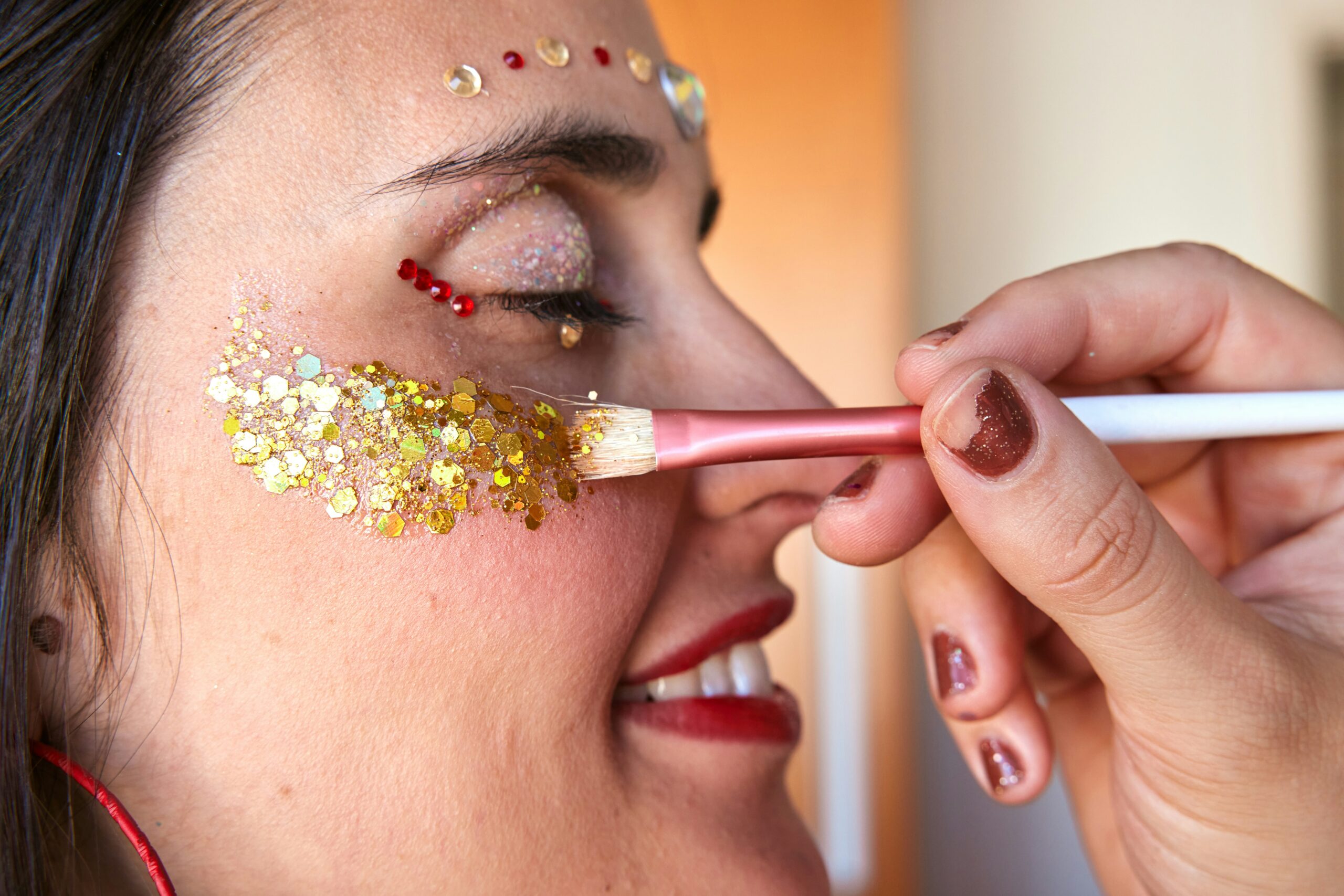As far as we think we’ve come as a people, as a culture and as a country, we still have quite a long way to go. Unfortunately racial tensions not only continue to exist and permeate so many aspects of our day-to-day lives, but they also greatly impact patients’ standard of care in America.
For instance, in the United States of America, Black mothers are three times more likely to experience pregnancy-related mortality than white women, according to the Centers for Disease Control and Prevention (CDC). Despite the fact that maternal mental health is a critical aspect of overall well-being for new mothers, Black women often face significant disparities, putting them at greater likelihood of encountering maternal mental health challenges, such as postpartum depression and anxiety.
The healthcare system may be aware of these glaring disparities, but the numbers continue to rise. Even celebrity athletes like Serena Williams and Olympian Torie Bowie are no exception—despite their status and income, Williams experienced a near-death post-birth experience and Bowie sadly lost her life to preventable circumstances.
“Typically, when a woman learns she is pregnant, her first thoughts are questions like ‘Will it be a boy or a girl?’, ‘I wonder how my body is going to change,’ and ‘who will my baby look like?’” explains Donna Adams Pickett, M.D., OB/GYN in Augusta, Georgia, who is leading the charge as an advocate and expert in the field of Black Maternal Health. “For Black women, increasingly, the question is ‘Am I going to die?’”
Maternal mortality rate for Black women in America
The statistics are startling—the maternal mortality rate for Black women is 69.9 deaths per 100,000 live births, 2.6 times the rate for White women. The United States leads industrialized countries in maternal deaths—and these numbers have continued to rise steadily for 3 years, according to a new report from the National Center for Health Statistics. In 2021, the maternal mortality rate was 32.9 deaths per 100,000 live births compared with the rates from 2020 and 2019, which were 23.8 and 20.1 respectively.
“It does not matter what the educational background, socioeconomic status, or if the patient has commercial insurance or Medicaid,” Dr. Adams Pickett goes on to explain. “If you are a Black woman in this country your path to and through pregnancy is precarious.”
Why do Black women in America face such disparities?
There are so many reasons why Black women face an increased risk of maternal health complications, including maternal mortality—and many of these reasons are embedded in our culture, having been passed down from generation to generation.
For starters, Dr. Adams Pickett points out that Black women have had to cope with barriers to optimal health care even prior to becoming pregnant due to being uninsured or underinsured and, in some cases, due to personal and professional obligations that prevent them from optimizing their health prior to pregnancy.
“We add to that, Black women whose specific concerns and warning signs of impending complications are not acknowledged by their healthcare providers during their pregnancy and their delivery due to implicit biases,” she says. “Culminate that, with decreased access to necessary, sometimes emergent, obstetrical interventions due to increasing maternal care deserts.” These maternity care desserts are often associated with an increase of maternal death—and as many as 2.2 million U.S. women of childbearing age live in them, according to a study published in the journal Women’s Health Issues.
Food desserts are also a thing, explains Kecia Gaither, M.D., double board-certified in OB/GYN and Maternal Fetal Medicine and Director of Perinatal Services/Maternal Fetal Medicine at NYC Health and Hospitals/Lincoln in the Bronx. “Decreases in the ability to obtain nutritious foods leads to an increase in vitamin deficiencies,” she says. “Many individuals reside in these areas where fast food facilities or small corner markets sell foods of low nutritional value, high salt, fat or sugar content, which ultimately impacts the health status of individuals and leads to an increases in diabetes, hypertension and obesity.”
As an African-American female physician, Dr. Adams Pickett has seen these maternal health disparities play out over and over again. She notes that she is often challenged when she advocates for necessary interventions for her patients. “Too often, nursing, anesthesia and other non-Black obstetrical providers resist my efforts to go the extra mile for my patients when their medical conditions indicate a need to do so and I have seen and heard pre-judgements of patients, rolled eyes, frustrations and frankly inappropriate comments from staff when a Black patient presents for evaluation during their pregnancy,” she says. “Way too many times a patient’s condition has been presented to me in a dismissive manner so that I can provide orders to discharge the patient quickly without proper evaluation and investigation.”
These are the situations that have inspired her to advocate for her patients and “stand in the gap” for them, as she puts it, as much as possible. “The downside is that, as a Black woman, I am viewed as ‘aggressive’ and ‘confrontational’ for doing so,” she adds.
How to better advocate for Black women during pregnancy and postpartum?
To give yourself the greatest chance of having adequate care and support during your pregnancy and postpartum period, here are some tips for how to better advocate for yourself in the medical sphere.
Choose your health care provider wisely
Instead of just accepting whomever is assigned to you, consider doing your research to find a provider who is willing to educate and support you at each of your prenatal visits. “Your physician or midwife should provide knowledge and information throughout your pregnancy and delivery,” says Dr. Adams Pickett. “They should prepare you to be conscious and aware of what should happen to you physically and mentally through this process.”
If possible, Dr. Adams Pickett suggests choosing a care team that is racially diverse and/or culturally competent. “Choose clinical teams who acknowledge the inherent differences in these pregnancy statistics and are aware of a need to provide more specific, intentional care when it comes to pregnant Black birthing people,” she says. “When it comes to pregnancy care, ‘one size fits all’ medicine is not acceptable.”
Bring a support person to each prenatal visit
If at all possible, don’t go to your prenatal appointments alone. Instead, enlist your partner, a friend or family member to be your communication resource and have them accompany you to each of your prenatal visits, through your labor and through your postpartum care. “This person can serve as an extra set of ears to hear important information dispensed by your care team and assist you in communicating your questions and concerns,” Dr. Adams Pickett adds.
Don’t hold anything back—ask away
It’s so important that you feel comfortable enough to share whatever is on your mind—no question, comment or confession is off limits. What’s more: Dr. Adams Pickett points out that the answer provided to you should make sense and adequately answer your concerns. “If something doesn’t make sense, ask more questions and make the health of you and your baby top priority,” she adds.
Hire a BIPOC doula
A doula is a trained professional who provides emotional, physical and informational support to individuals before, during and after childbirth. While they are an added cost to the pregnancy equation, they can support your advocacy efforts in your most vulnerable of moments. “Speaking up and pushing back against environmental stressors in the hospital setting is extremely challenging for the birthing person, who at their core really needs to stay in a primal state of mind for a smooth birth process,” says Princess McKinney-Kirk, Postpartum Doula and CEO of Bellibind. “Having a doula who understands the environmental stressors within the hospital setting helps immensely when it comes to communicating the client’s needs.”
What can non-Black women do to be an ally in this arena?
Even, and especially, in the healthcare sphere, non-Black women can be an ally by becoming more aware of the challenges Black women are facing. “Even if you don’t identify as Black, working with providers for your own care who have proven they understand the need for advocacy and diversity,” explains Shemiah Derrick, Licensed Clinical Professional Counselor & Certified Alcohol and Other Drugs Counselor. “If you work with a provider who is affirming and allied to Black women, call that out and share it and if an issue doesn’t directly apply to you, be a part of the conversations and learn about what the issues are and help to amplify the need for solutions.”
Author
-

Jenn Sinrich is the co-founder of Mila & Jo Media, an award-winning journalist and mom to Mila, Leo and Eli. She's also on-track to become a bereavement and postpartum doula to help women, like her, who've experienced pregnancy loss. She's a Peloton-tread addict who loves to cook and spend time with her friends and family. A Boston-native, she has always loved the Big Apple, which she called her home for close to a decade.
View all posts
Follow Jenn on Instagram, subscribe to her Substack and visit her website.




